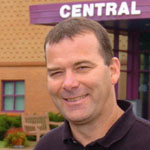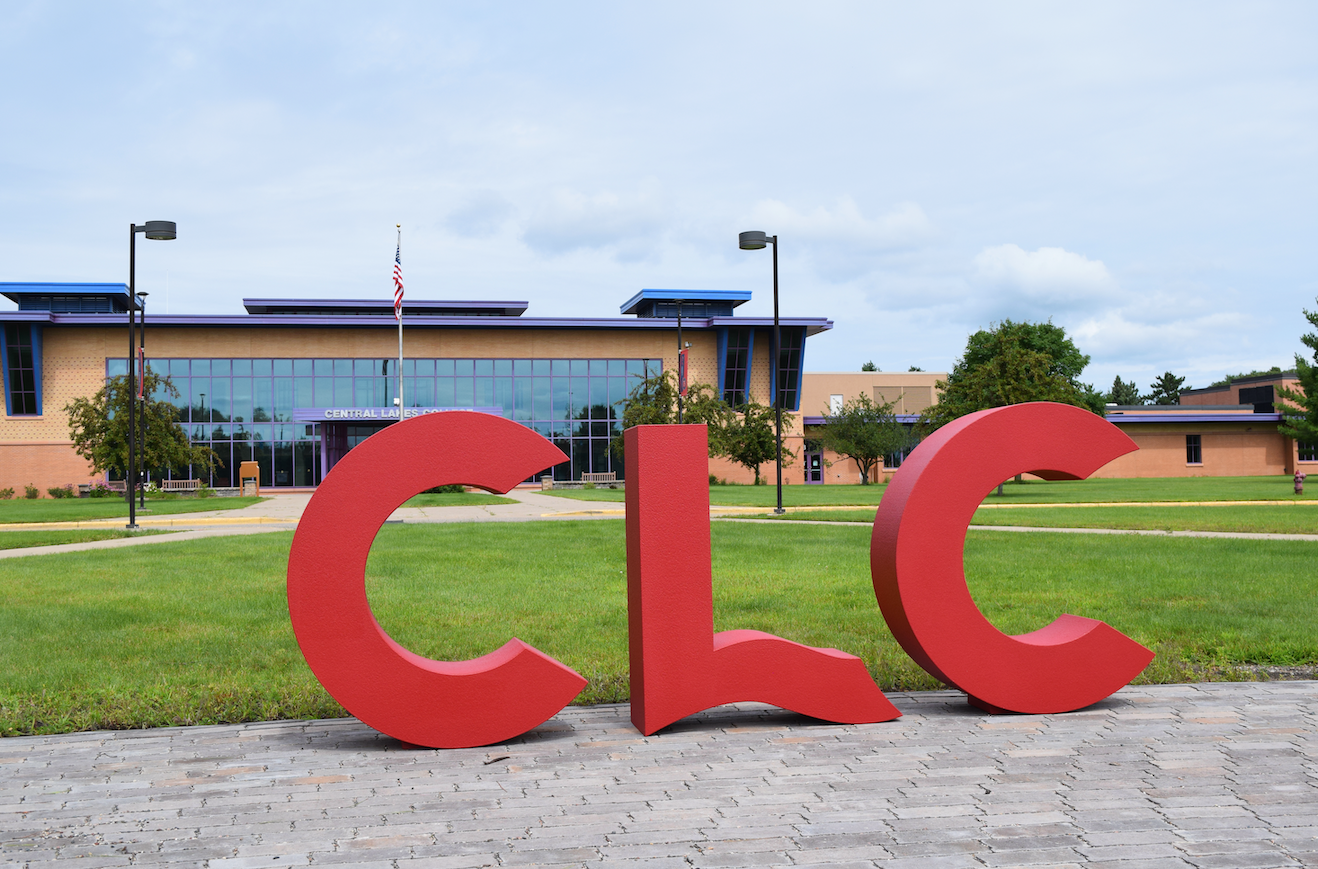 Skills training, the
Skills training, thehands-on experience needed to prepare for a peace officer certification test,
next May will be part of the Criminal Justice program at Central Lakes College,
Brainerd. Law enforcement agencies – state, municipal
and county – have the continual need for well trained and highly skilled
officers. State and federal government agencies have need for highway patrol,
treasury agents, FBI, immigration, security guards and conservation agents. Designed to equip the prospective peace officer with tools necessary to
qualify for licensure in Minnesota, the eight-week, 12-credit certificate
program grew from CLC’s recognized academic degree from in law enforcement.
“We are offering several unique elements that make
students employable with certifications that otherwise might be an expense for
law enforcement agencies,” said Dave Davis, program coordinator. He is a
full-time deputy with the Crow Wing County Sheriff’s Office.
students employable with certifications that otherwise might be an expense for
law enforcement agencies,” said Dave Davis, program coordinator. He is a
full-time deputy with the Crow Wing County Sheriff’s Office.
“I am passionate about offering this training,”
said Dave, an adjunct faculty at CLC in the program where wife Gae is one
of two full-time instructors. Curtis Pribnow is the other.
said Dave, an adjunct faculty at CLC in the program where wife Gae is one
of two full-time instructors. Curtis Pribnow is the other.
In addition to meeting the needs of local criminal justice students and
graduates, having skills training in Brainerd also benefits law enforcement
agencies.
graduates, having skills training in Brainerd also benefits law enforcement
agencies.
Students have the opportunity to obtain
certification in areas such as the Safe and Sober campaign, with special
training in Standard Field Sobriety Testing (SFST).
certification in areas such as the Safe and Sober campaign, with special
training in Standard Field Sobriety Testing (SFST).
Other certifications are designed with an eye on
the future of law enforcement based on what Davis and other peace officers have
observed in the field with inexperienced colleagues.
the future of law enforcement based on what Davis and other peace officers have
observed in the field with inexperienced colleagues.
“We are giving our students the training before
they enter the profession, Dave said. “Departments won’t need to spend
the $500 to $600 to send someone for the certification.”
they enter the profession, Dave said. “Departments won’t need to spend
the $500 to $600 to send someone for the certification.”
The CLC Skills program intends to incorporate technology, from
computers to Light Detection and Ranging (LIDAR) devices pegged at pinpointing
moving vehicle violators. The college programs’ seven-squad fleet will showcase
data retrieval tools and low-light vision aids.
computers to Light Detection and Ranging (LIDAR) devices pegged at pinpointing
moving vehicle violators. The college programs’ seven-squad fleet will showcase
data retrieval tools and low-light vision aids.
Community partnerships are forming to support firearms training at a
new indoor firing range, with consultation from developer Stewart Mills. An
Emergency Vehicle Operations Class (EVOC) will make use of an exceptional
roadway interchange course at Camp Ripley.
new indoor firing range, with consultation from developer Stewart Mills. An
Emergency Vehicle Operations Class (EVOC) will make use of an exceptional
roadway interchange course at Camp Ripley.
“We are getting a lot of support from our advisory committee chaired by
(Deerwood Police Chief) Harry Gottsch,” said Gae. The committee includes
representatives from several county sheriffs and related agencies, city police
departments, the DNR, and tribal police.
(Deerwood Police Chief) Harry Gottsch,” said Gae. The committee includes
representatives from several county sheriffs and related agencies, city police
departments, the DNR, and tribal police.
“We will have about 20 law enforcement professionals who are certified
specialists, teaching 29 Skills courses,” Dave said. The classes emanate
from general areas of firearms, patrol practices, use of force, and tactical
communication.
specialists, teaching 29 Skills courses,” Dave said. The classes emanate
from general areas of firearms, patrol practices, use of force, and tactical
communication.
Instructors draw from years of practical law enforcement street
experience and focus on developing skills which are tactically safe and
realistic.
experience and focus on developing skills which are tactically safe and
realistic.
Dave said that one Skills instructional component will involve
physical testing, for which he will be certified after attending the Cooper
Institute in Dallas in late July.
physical testing, for which he will be certified after attending the Cooper
Institute in Dallas in late July.
Students accepted for admission in the Criminal Justice program need to
pass a background check. When they complete the training, graduates are
presented certificates at a formal program.
pass a background check. When they complete the training, graduates are
presented certificates at a formal program.
If unable to complete a Skills component, the student can re-take. Miss
again and you’re sent to the back of the line.
again and you’re sent to the back of the line.
“We’re preparing the future
professionals according to Peace Officer Standards Testing (POST) objectives,”
said Gae. “And we are going to give them additional, marketable skills
and tactical insight.”
professionals according to Peace Officer Standards Testing (POST) objectives,”
said Gae. “And we are going to give them additional, marketable skills
and tactical insight.”
Skills training, as with the academic portion of law enforcement at
CLC, provides networking opportunities, an ever-growing facet of effective
enforcement. “Crime is no longer local,” Dave said. “Criminals are
networking. We have to do likewise.”
CLC, provides networking opportunities, an ever-growing facet of effective
enforcement. “Crime is no longer local,” Dave said. “Criminals are
networking. We have to do likewise.”
An Aug. 29 orientation from 8 a.m. to noon will
give newly enrolled Criminal Justice candidates a closer look. Cooperating
departments at CLC, including Financial Aid, will assist.
give newly enrolled Criminal Justice candidates a closer look. Cooperating
departments at CLC, including Financial Aid, will assist.
The new academic year starts Aug. 27. Gae Davis and Curtis Pribnow, full-time
instructors, and adjunct instructors Andy Galles, Chad Turcotte, and Dave Davis
(all full-time deputies with the CWCS Office) will welcome the new class and
expect 40 or more to seek Skills certification.
instructors, and adjunct instructors Andy Galles, Chad Turcotte, and Dave Davis
(all full-time deputies with the CWCS Office) will welcome the new class and
expect 40 or more to seek Skills certification.
 CLC News The news and events from Central Lakes College
CLC News The news and events from Central Lakes College



